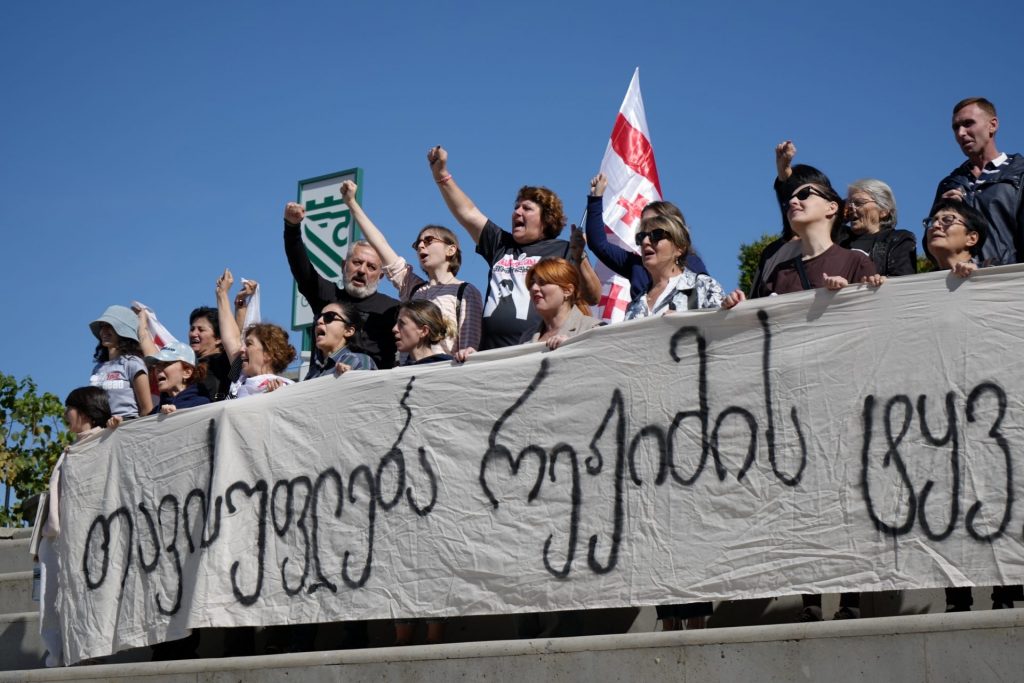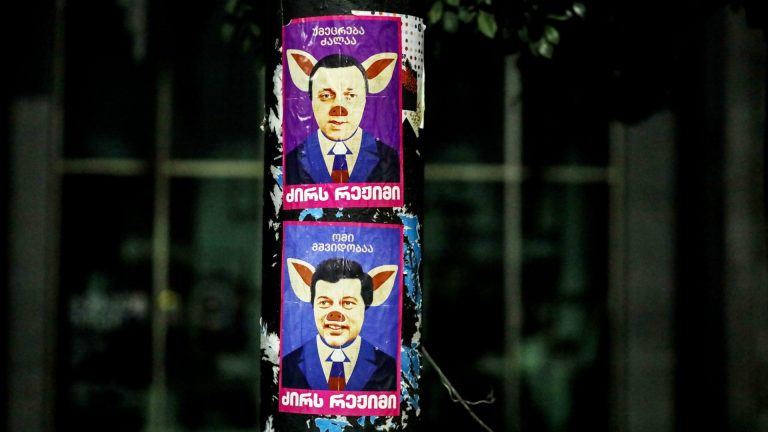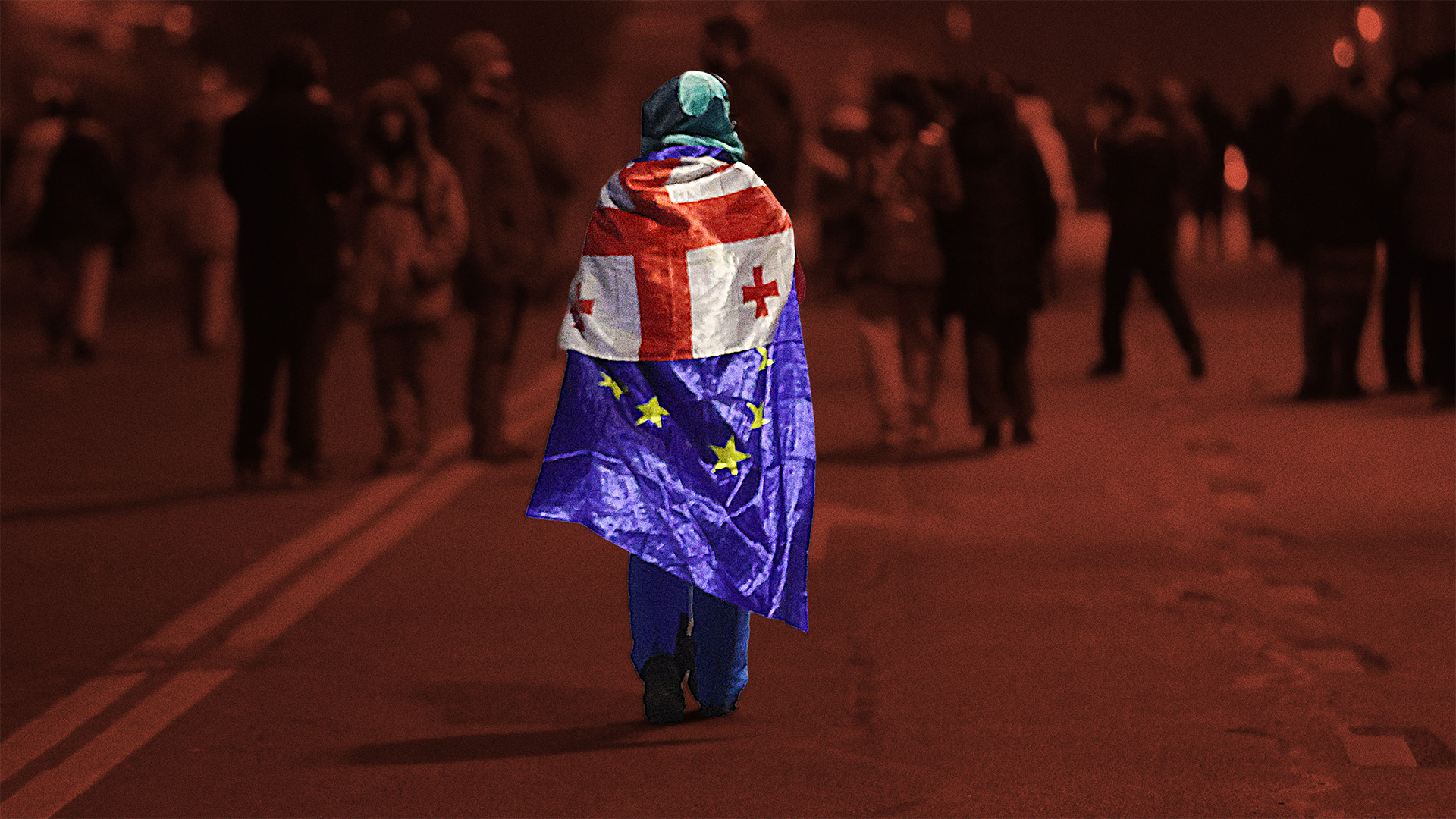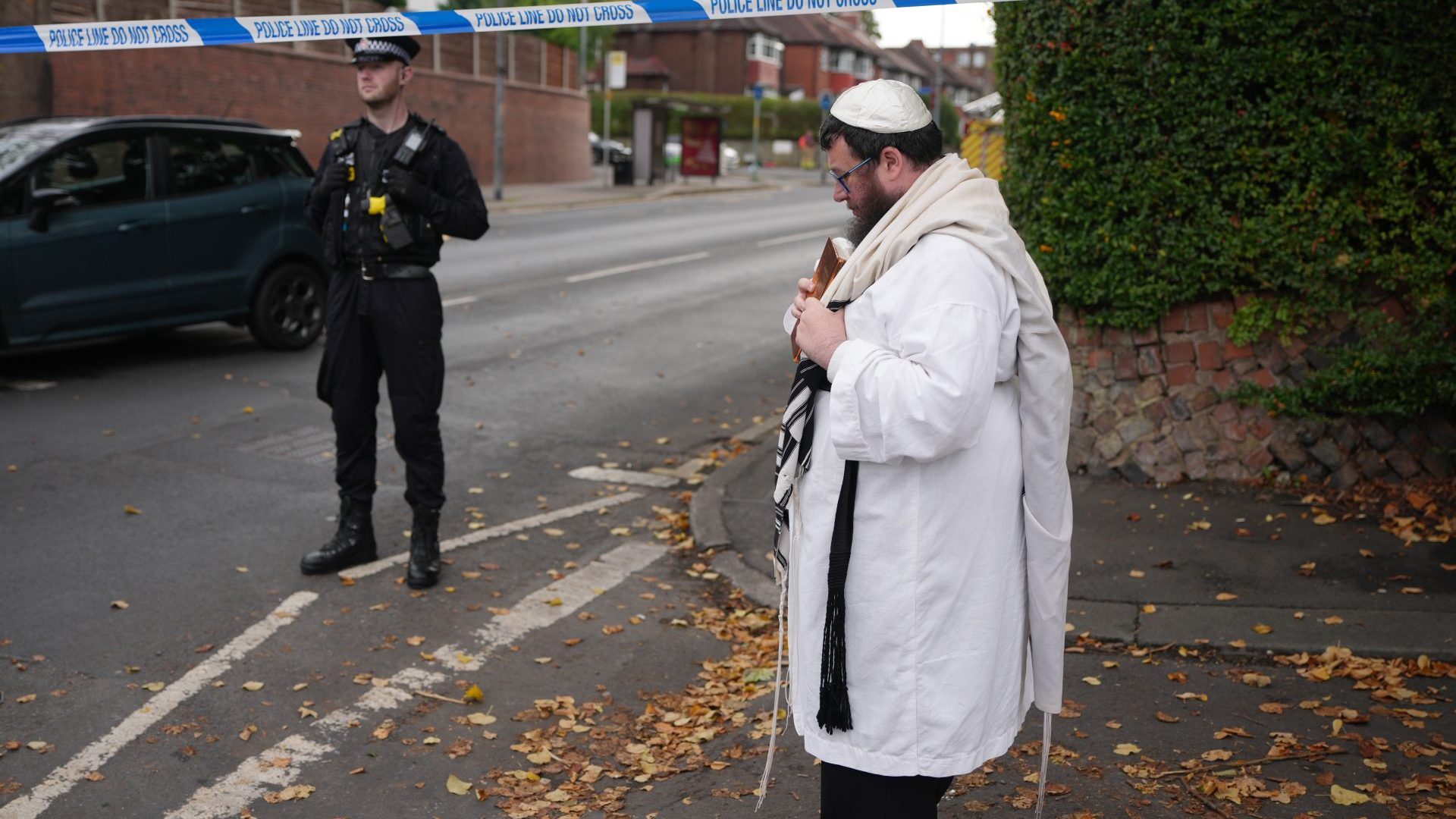Cloaked in Georgian flags, and with their sons’ faces printed across their t-shirts, a small group of women stride through a market in the southwestern Georgian city of Akhaltsikhe. They wind their way between tables lined with rows of peppers and crates of figs, pushing newspapers into the hands of bemused vendors.
Across the front page is the headline: “Freedom to the political prisoners”. Inside there are letters written by their sons from behind bars. They were all jailed in connection with the mass protests that took place late last year, which erupted after the ruling Georgian Dream party, who had claimed victory in widely disputed parliamentary elections a month before, suspended Georgia’s bid to join the EU. That move, coupled with other repressive legislative changes, was a signal of a drift away from the west and towards the Kremlin.

The women travel to a new destination each weekend. Away from Tbilisi, the epicentre of the protest movement, they spread awareness about the arrests and what they see as Georgia’s slide towards authoritarianism. So far, their campaign has taken them to the eastern winemaking region of Kakheti, Stalin’s home city of Gori, and even to the border of the breakaway region of Abkhazia.
When we join them on a drizzly Saturday morning at a Tbilisi bus station, their mood is buoyant. They pose for a photo and sing a chorus of Let the oligarchy burn! before setting off for Akhaltsikhe.
“We really are like one family,” Tsaro Oshakmashvili tells us as we drive. “The boys’ imprisonment and our love of our homeland united us very strongly.”
Oshakmashvili is here to fight on behalf of Archil Museliantsi, a protester she met at a rally outside parliament. When she found out he was an orphan, she decided to take on the role of his mother. She has since sent him New Year’s gifts, convinced him to quit smoking and even helped him enrol at university from behind bars.
It’s an unconventional relationship, but for Oshakmashvili, its foundations are simple. Archil is “a boy imprisoned for his nation,” she says. “How could I not fight for him?”
The sons follow their parents’ progress from their cells. Their mothers, now familiar faces on opposition-aligned TV, often stop to speak to the cameras.
Marina Terishvili is 74. Her son, Giorgi, called her from prison to say he had spotted her during a broadcast. Marizi Kobakhidze has impressed her son Tornike Goshadze’s cellmates: “They say, ‘your mother speaks so strongly, sometimes we think she might fire a Mauser from somewhere’.”
When we finally reach Akhaltsikhe. The long drive hasn’t dimmed the mothers’ energy. They fan out across the market with their stacks of newspapers. Some locals refuse them outright; others pause to read. One vegetable seller is sympathetic: “There is injustice in the country, no democracy, no rights… if you say a little too much that’s it – it’s over.”
But not everyone agrees. A car draws up to the group, slowing as its driver unfurls a blue cloth from the window, emblazoned with the Georgian Dream logo. The mothers hurl insults. Some hostility is expected. The party claimed a comfortable majority in Akhaltsikhe in the controversial 2024 elections.
The mothers’ defiance comes at a time when the broader protest movement is looking deflated. After nearly a year of daily demonstrations in Tbilisi, numbers have been dwindling.
Their Akhaltsikhe visit comes the weekend before municipal elections, which have been boycotted by the opposition. When polling day arrived, a Tbilisi rally touted as the start of a “peaceful revolution” brought demonstrators out into the streets with renewed vigour. However, a botched attempt to storm the presidential palace quickly left those not apprehended by authorities unsure what to do next. What some hoped would be a turning point ultimately fizzled out.
Still, the mothers are fixed in their resolve. When we spoke to Kobakhidze after the events of polling day, she claimed that the campaign will continue “until victory”.
After all, they’ve already experienced periods of great turbulence. Kobakhidze remembers, in the Soviet period, witnessing the Red Army’s crackdown on a pro-independence rally on 9th April 1989 that left 21 demonstrators dead. “I survived the Russians’ blows then and I wasn’t afraid, and now they won’t frighten me either,” she tells us.
Suggested Reading


Bidzina Ivanishvili, Georgia’s French despot
Terishvili also sees continuity between the past and today’s effort. Her other son, Mamuka, was shot and killed at a demonstration during Georgia’s 1990s civil war. “We will continue fighting with courage and determination for the European future that Mamuka sacrificed himself for and that Giorgi continues to fight for,” she tells us.
The trip ends at Akhaltsikhe’s ninth-century fortress, where they ascend a parapet and unfurl a banner that reads “freedom to the regime’s prisoners”. Viewed from the courtyard below, they look like a small group, and few people have gathered in support. This doesn’t seem to matter to them, however; regardless of the mood in their country, the mothers are determined to remain a pocket of resistance.



